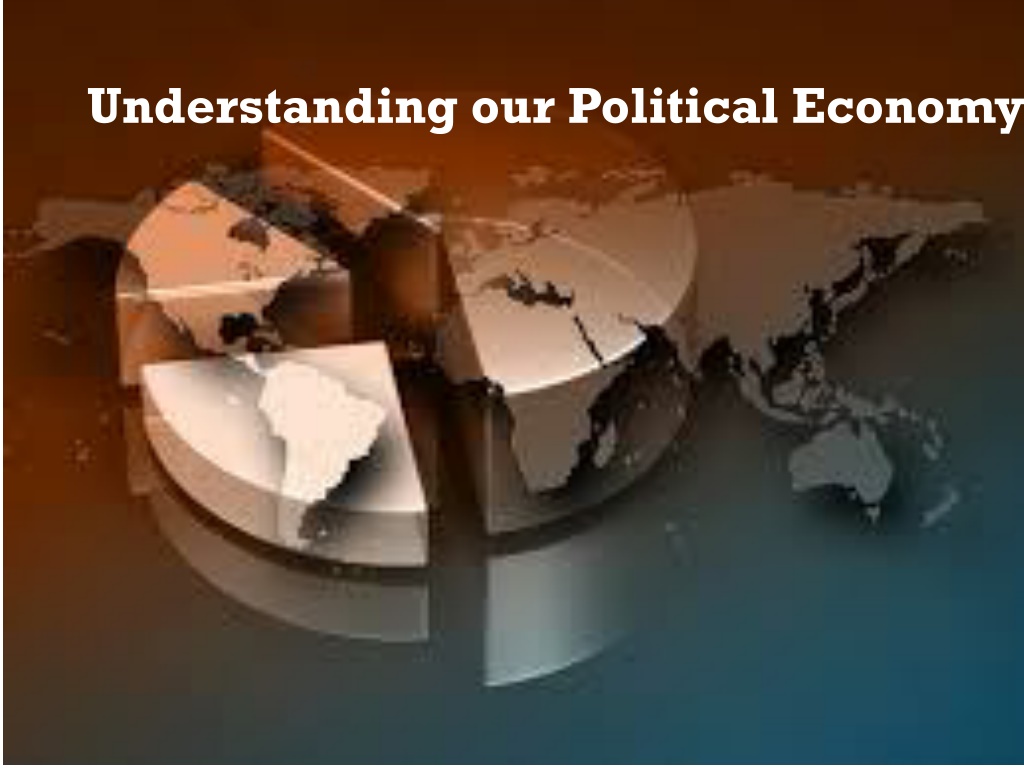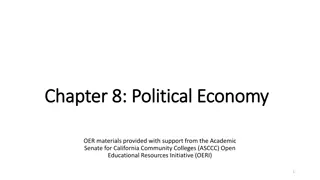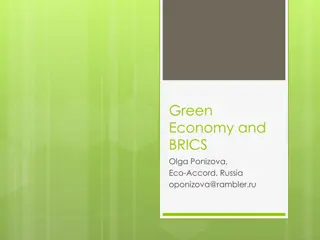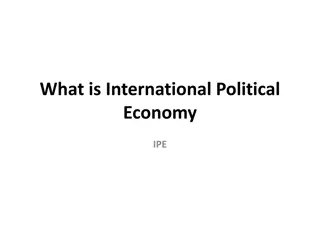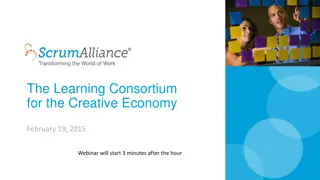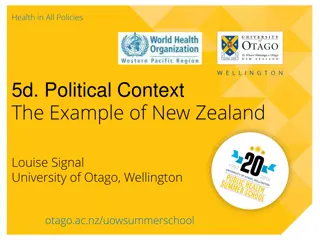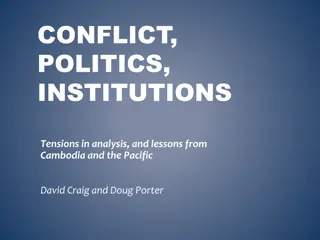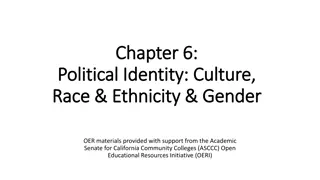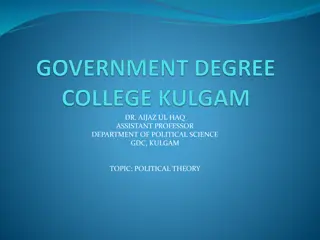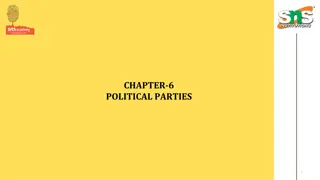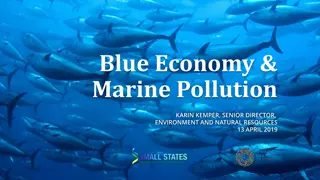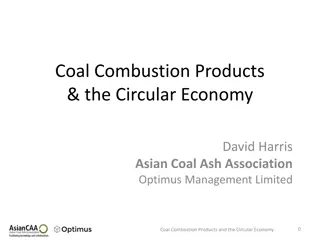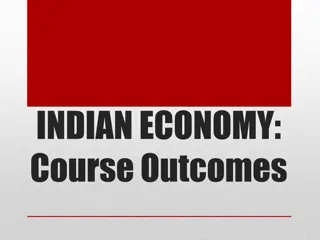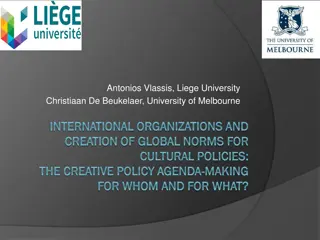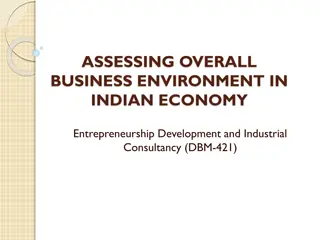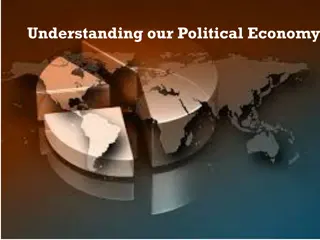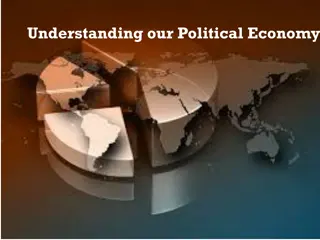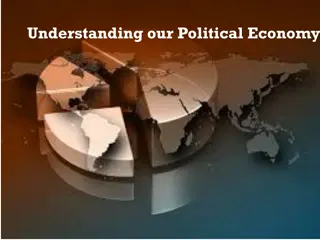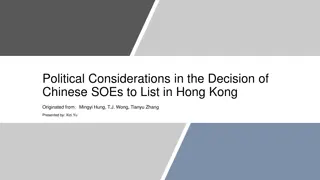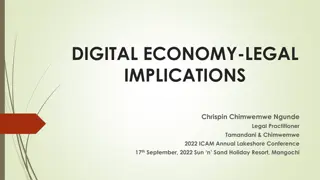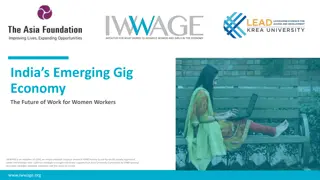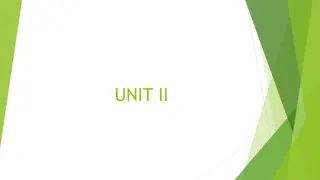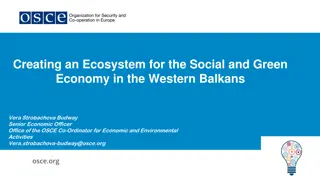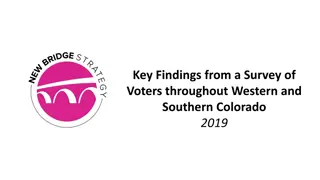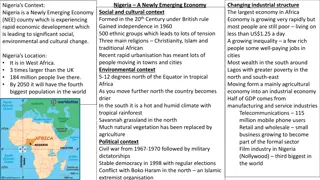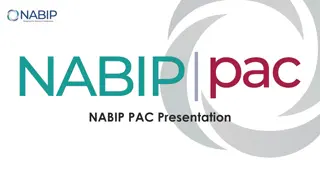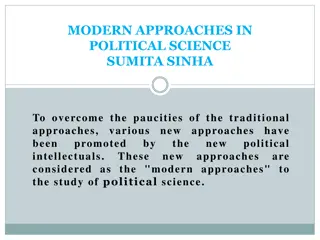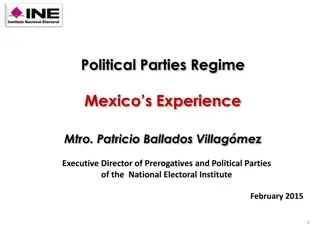Exploring Our Political Economy: A Comprehensive Overview
Delve into the intricacies of political economy with instructor Edward J. Dodson as he discusses why it matters and how it differs from traditional economics. Explore various disciplines that intersect with political economy and the pursuit of truth amidst challenges. Engage with thought-provoking slides and powerful insights that shed light on this critical subject.
Download Presentation

Please find below an Image/Link to download the presentation.
The content on the website is provided AS IS for your information and personal use only. It may not be sold, licensed, or shared on other websites without obtaining consent from the author. Download presentation by click this link. If you encounter any issues during the download, it is possible that the publisher has removed the file from their server.
E N D
Presentation Transcript
INSTRUCTOR Edward J. Dodson, M.L.A. email contact: edod08034@gmail.com
LECTURE 1 Why Political Economy Matters
Political Economy vs. Economics
Anthropology Cultural Studies Development Studies Economics Education Human Geography Law Political Science Psychology Sociology
The truth that I have tried to make clear will not find easy acceptance. If that could be, it would have been accepted long ago. If that could be, it would never have been obscured. But it will find friends those who will toil for it; suffer for it; if need be, die for it. This is the power of Truth.
Economics is fundamentally different from every other discipline in the academic world, including the other social sciences. No other academic field, unless influenced by economics, teaches and promotes self-interest. All other fields essentially teach knowledge and truth.
Economics is neutral as between ends. Economics cannot pronounce on the validity of ultimate judgments of value. Lionel Robbins. An Essay on the Nature and Significance of Economic Science, 1962, p.147
The problem of values arises only when men try to fit together their need to be social animals with their need to be free men. Jacob Bronowski. Science and Human Values, 1965. p.55
Liberty is freedom exercised under the restraints of justice so that its exercise results in injury to no one. Mortimer J. Adler. The Common Sense of Politics, 1971, p. 125
The reason why men enter into society is the preservation of their property; and the end why they choose and authorize a legislative is that there may be laws made and rules set as guards and fences to the properties of all the members of the society, to limit the power and moderate the dominion of every part and member of the society;
William Stanley Jevons
Butter Guns The Production Possibilities Curve
In the first stage of mans economic development, nature is the great factor in production. There is little labor and less capital. It follows that there was little ownership of land in the sense in which we now regard ownership. The notion of land ownership develops only when the land itself becomes more useful, and when the fruits of its fertility can be more directly appropriated than could happen when land was used for pasturing.
Man does not create these natural treasures nor give direction to nature in their formation. Some nations have deemed it unfair that they should become the property of individuals, and have therefore treated them as a common heritage, exacting a rent or royalty for the opportunity to exploit them. ...
This is perhaps generally the case to-day on the continent of Europe; but English law, with its inclination to the exaggeration of private rights, has long established the principle that he who owns the surface owns downward to the centre of the earth and upward to the sky.
The man in whose power it might be to find out the means of alleviating the sufferings of the poor would have done a far greater deed than the one who contents himself solely with knowing the exact numbers of poor and wealthy people in society. Vilfredo Pareto. The New Theories of Economics, Journal of Political Economy, volume 5, 1897
The liberal and radical forces of American life the men and women who had sacrificed, suffered, labored and struggled to make America safe for democracy, were brushed aside by the triumphant Patriotic plutocracy; Morgan, Rockefeller, Guggenheim were the great patriots. All who opposed them were traitors. The plutocracy had always stood and still stands for special privilege in its most vicious form. Scott Nearing, The Great Madness: A Victory for the American Plutocracy, 1917
John Kenneth Galbraith
Things may be less than good, less than fair, even less than tolerable; that is not the business of the economist as an economist. The economist s task is to stand apart, analyze, describe and where possible reduce to mathematical formulae, but not to pass moral judgment or be otherwise involved. John Kenneth Galbraith. Economics in Perspective, 1987, p.124
John Kenneth Galbraith
